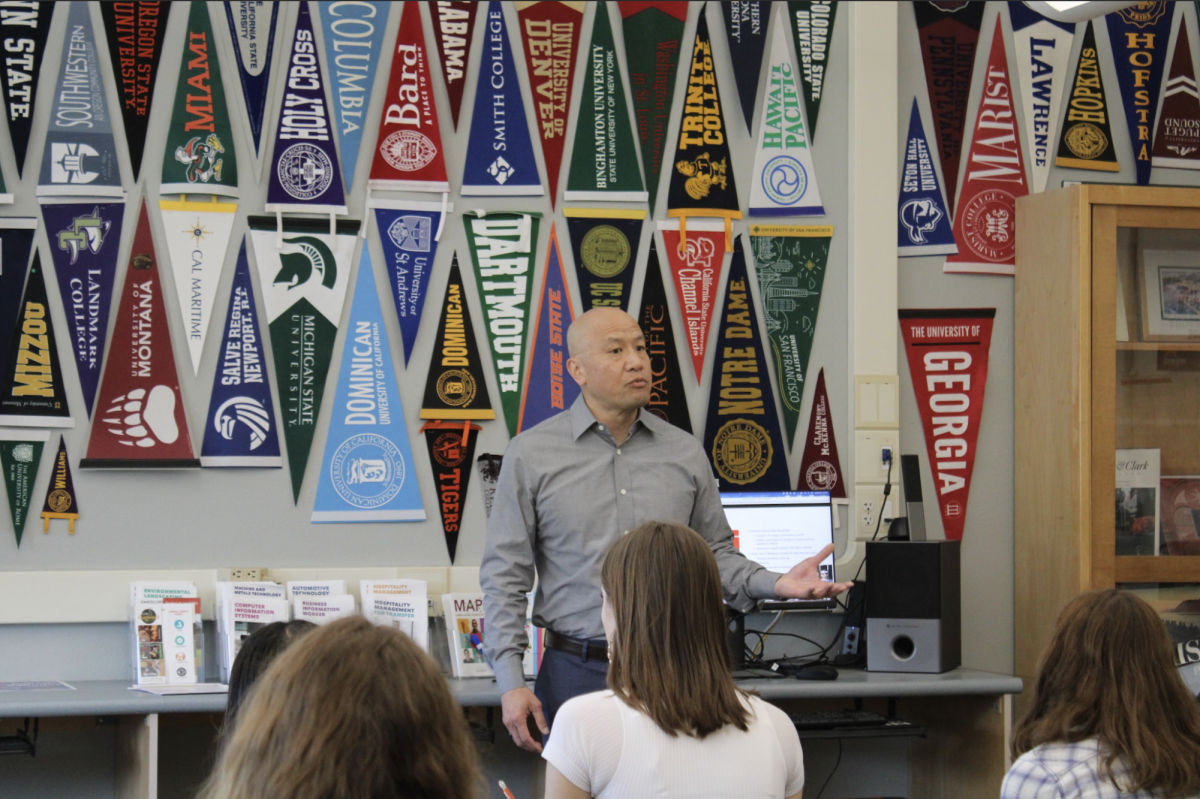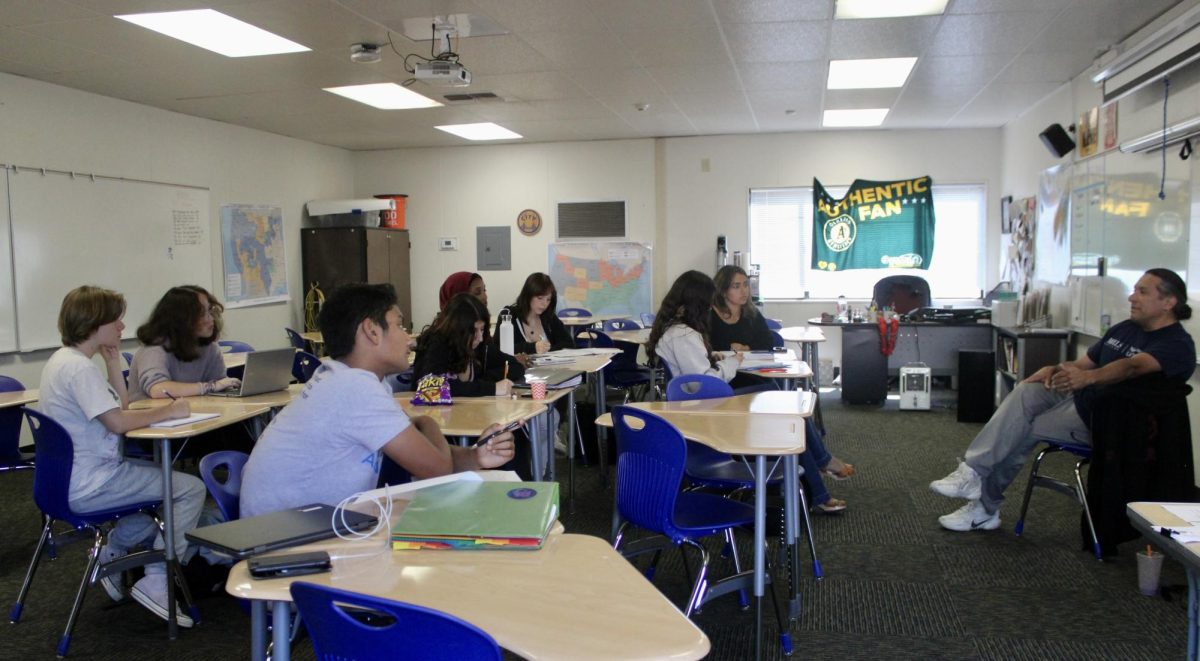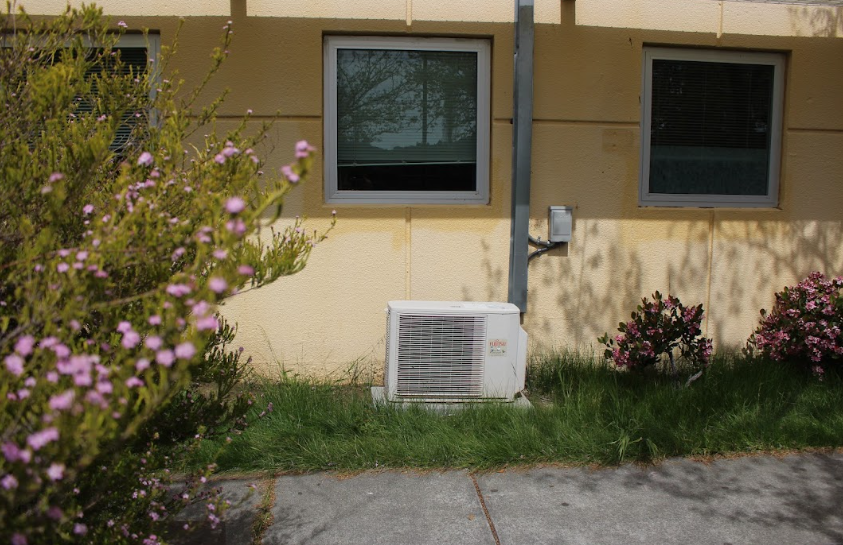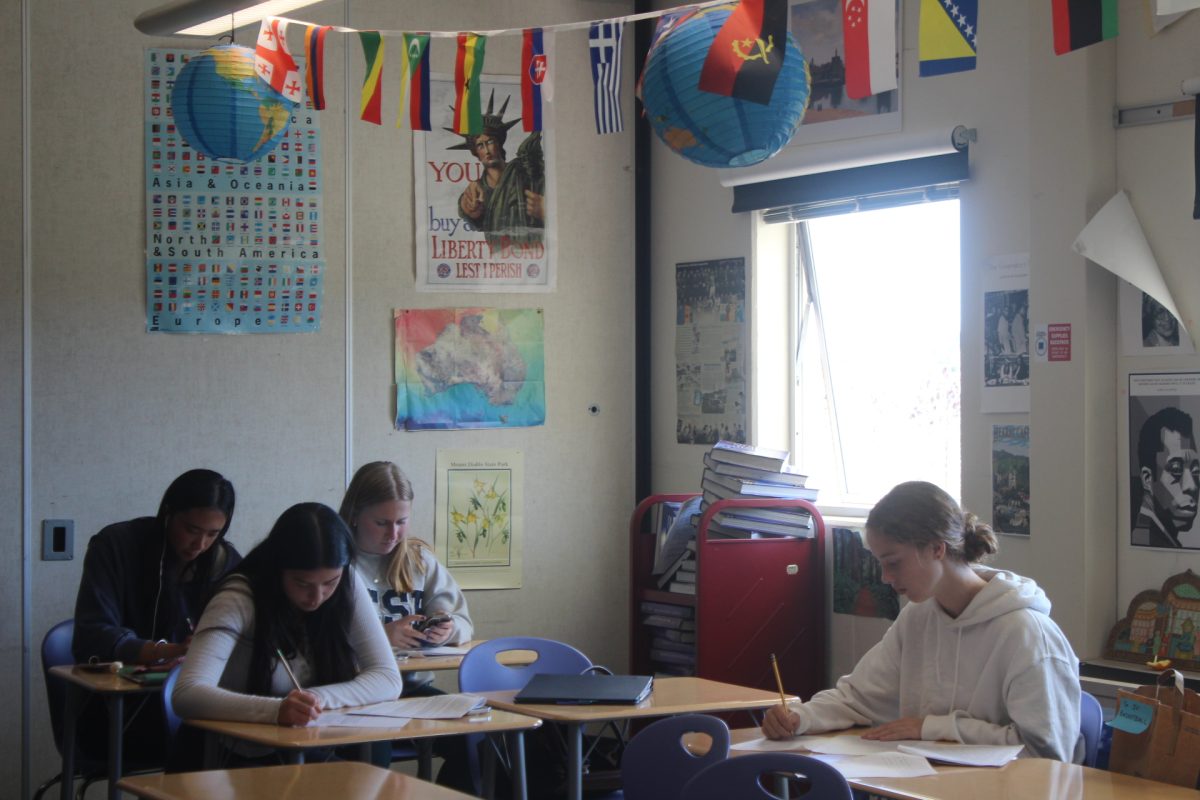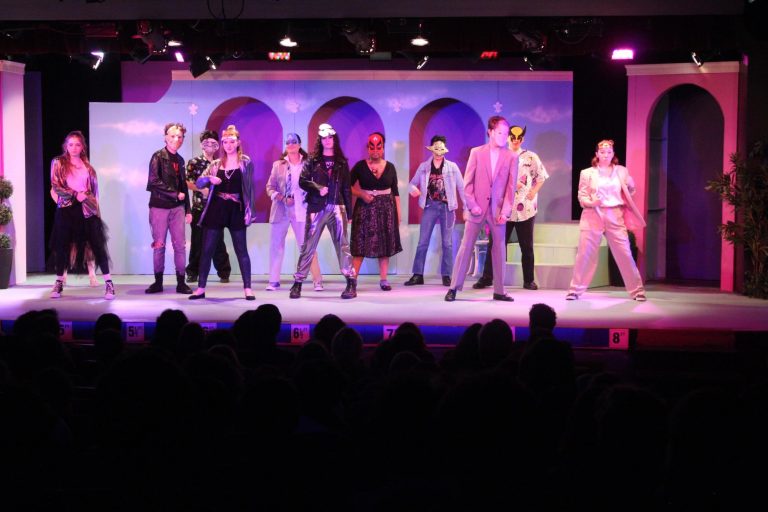“Watch out! She’s ballistic!” shouted launch overseer David Raimondi seconds before the Rocket Club’s rocket finished its 800 foot freefall onto the tarmac at Moffett Field. The parachutes had deployed as planned, but a broken parachute mount allowed the chutes to separate from the rocket, and it began its uncontrolled crash landing.
Redwood seniors Alex Gotz and Ezra Hoffman grimaced. This was all too similar to the crash their team experienced earlier in the year when their parachutes didn’t deploy at all. Still, they walked out to retrieve pieces of the wreckage—they had to salvage parts from the rocket for another qualifying run.

Unfortunately, their efforts went unrewarded when they failed to qualify for the national Team America Rocketry Challenge (TARC).
Gotz and Hoffman are the captains of the Redwood Rocketry Club, which is in its third year. Both of them are returning members from last year, when the team nearly qualified for the national TARC finals.
“We came into [this year] excited and ready coming off of last year when we were pretty close to qualifying for nationals,” Hoffman said. “This year we had good designs like we did last year, but every time we went out to launch we experienced little problems here and there that stopped it from coming together.”
One of the problems was a malfunctioning parachute deployment system, an issue that plagued the team through the entire year, imperiling their chances of qualifying several weeks before the first round of competition.
“The first launch of this year we practically destroyed the rocket we spent several months building when the parachutes didn’t deploy,” Hoffman said.“Even though it was just practice, we were a little over-ambitious and we decided to go for a full launch on our last run, and put the eggs and everything in on that one, but we lost control and we ruined it. But we came back and we built another one.”
According to Gotz, the rocket that the team rebuilt wasn’t actually up to par for the competition.
“The problem was that the rocket we used today was kind of put together at the last minute because our main rocket was ruined at the previous launch, so we had to scrounge around for parts,” Gotz said. “It wasn’t as well made because we just had to salvage what we could.”
The product of that rebuild was brought to Moffet Field to the qualifying launch on Sunday, March 30, when disaster struck and the parachutes detached from half of the rocket—again—and destroyed the new rocket on its maiden flight.
According to Lunar Club President David Raimondi, who has been overseeing the launches at Moffett Field since 2004, such failures can be common.
“It’s not unusual for a rocket to come down ballistic, especially if the parachutes aren’t properly attached or protected from the heat of the engine,” Raimondi said. “It can be very dangerous if it hit somebody, but so long as everyone is paying attention the only thing getting damaged is the rocket.”
But for the Redwood Rocket Club, the damage was extensive. It took some on-site repairs to cobble together a Frankenstien-esque rocket for their second qualifying launch. The repairs were effective, and after beefing up the parachute system the rocket managed to launch and parachute down properly, even if it fell short of the target altitude of 850 feet and the target flight time of 50 seconds. The lackluster performance of the rocket meant that the team wasn’t even close to qualifying for the national competition, which occurs on May 10.
Despite the failure, both Gotz and Hoffman said that they learned a lot from TARC.
“I thought it was a good learning experience for me, considering I’m going into aerospace engineering,” Gotz said. “I got a good practical experience, more on the hands on side of engineering, building this rocket.”
“It’s definitely more challenging than it appears,” Hoffman said, “but it’s definitely been fun. Obviously there’ve been some points that have been disappointing, but overall it’s just been fun to build and launch these rockets and watch them fly on a Saturday afternoon.”
All the team members of the club this year are seniors, meaning that if nobody new joins next year then the club will end its three-year tenure. However, Gotz said that he’s confident that the club will be able to get some new members.
“Unfortunately we don’t have any juniors or underclassmen on our team, but I think that the ISR teachers will promote this competition next year, and hopefully some Redwood students will take initiative and keep this team from dying out.”







